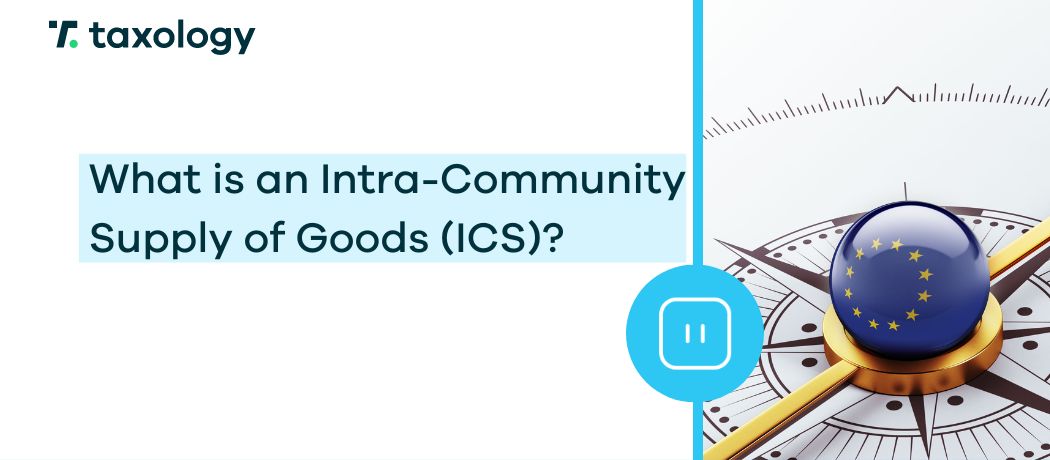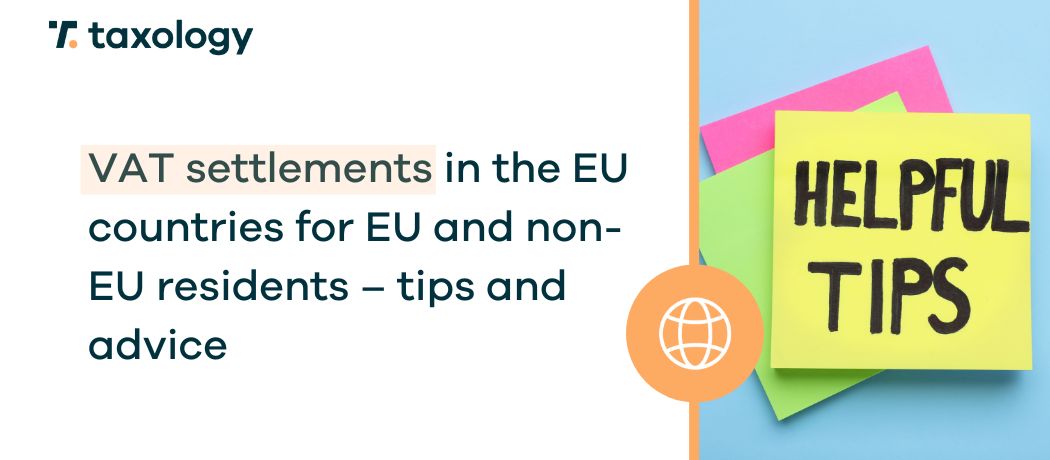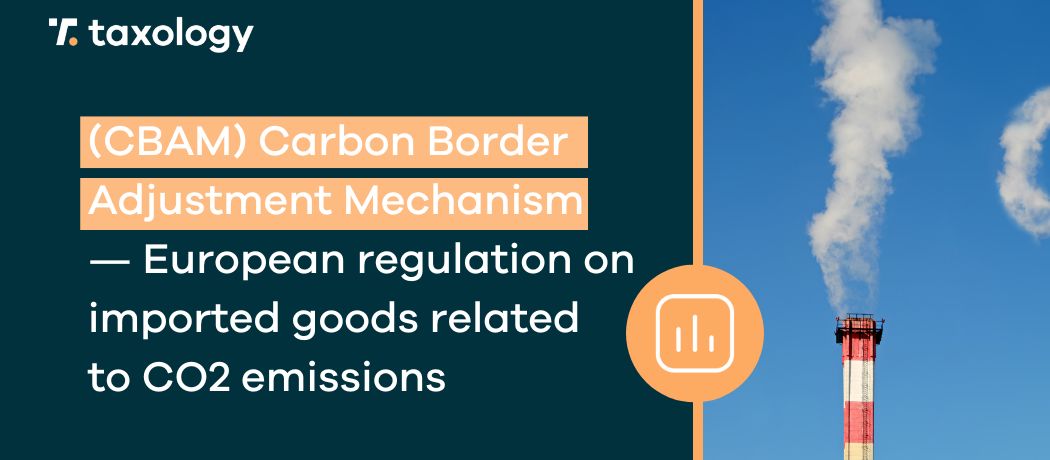VAT settlements in European Union countries are a key aspect of financial management for any business operating on the international market. Understanding the rules that govern these settlements is essential […]
Read in: 5 minWhat is an Intra-Community Supply of Goods (ICS)?
- Last update: 12.04.2024
- Published: 27.11.2023
- Read in: 5 min
The term “Intra-Community Supply of Goods” is frequently encountered when seeking information about the sale of services or goods that are shipped, for example, from the territory of Poland to another EU Member State. Generally, such sales are subject to a 0% VAT rate.
However, it is important to note that applying the 0% VAT rate requires meeting specific conditions. Non-compliance can lead to significant tax arrears.
Moreover, it should be considered that ICS transactions require a specific method of recording in tax registers. The article below outlines the key issues related to the principles of ICS transaction settlements!
From this article, you will learn:
- What is an intra-community supply of goods?
- What conditions must be met for a sale to qualify as an intra-community supply of goods?
- How to verify the information provided by the buyer to the seller in an ICS?
- When can the 0% VAT rate be applied in the case of intra-community supply of goods?
- When does the tax obligation arise from ICS?
- What is the tax base for intra-community supply of goods?
- What is the relationship between intra-community supply of goods and intra-community acquisition of goods?
What is Intra-Community supply of goods (ICS)?
The term “Intra-Community Supply of Goods” is defined by Article 13(1) of the Polish VAT Act. It refers to the export of goods from the territory of Poland to another EU Member State as a result of transactions specified in Article 7 of the VAT Act, which generally pertains to the supply of goods.
When can goods export qualify as an ICS?
To be classified as an ICS, the export of goods must meet several conditions relating to the status of the supplier, the buyer, and the nature of the goods involved.
Buyer in intra-community supply of goods
An ICS can occur if one of the following conditions is met:
- The buyer is a VAT taxpayer identified within the territory of an EU Member State other than the country from which the goods are supplied.
- The buyer is a legal entity, not a VAT taxpayer, but identified for intra-community transaction purposes in a Member State other than the supply country.
- The buyer lacks any of the above statuses, and excise goods are involved in the ICS under the suspension of excise duty collection or the procedure of moving excise goods with paid excise duty.
- The buyer lacks any of the above statuses, and the goods supplied are new means of transport.
Supplier in intra-community supply of goods
In addition to meeting the buyer-related conditions, for an ICS to occur, the supplier must be an active VAT taxpayer (not benefiting from a subjective exemption). Thus, if your company is exempt from VAT and sells goods to EU counterparties – you generally have no obligation to declare ICS or submit any VAT declarations. An exception applies to the supply of new means of transport.
Supplier and Buyer in ICS – Summary
To classify a transaction as an intra-community supply of goods, the supplier must be a VAT taxpayer in the EU, and the buyer must either have an EU VAT number or be identified for intra-community transaction purposes in a Member State other than the shipping country.
Exceptions include situations where the intra-community supply of goods pertains to new means of transport or excise goods, covered by the suspension of excise duty collection or the procedure of moving excise goods with paid excise duty. In these cases, the buyer is not required to be registered as an EU VAT taxpayer.
Intra-community supply of goods, 0% VAT rate
ICS transactions impose the VAT tax obligations on the buyer. Moreover, participants in intra-community transactions can apply a 0% VAT rate. However, to do so, they must meet further conditions:
- The buyer possesses a valid identification number, enabling verification for intra-community transactions.
- The supplier (seller) must have documents proving the export of goods from Poland and the delivery of goods in another EU country. Such evidence must be obtained before the deadline for submitting the tax declaration for the respective settlement period.
- The supplier, declaring an intra-community supply of goods in the tax return, must be registered as a VAT taxpayer in the EU.

Need help with VAT or e-commerce accounting?
Contact us and our specialists will deal with your case. Whether it is about ICS settlements, issues related to VAT or VAT OSS – registrations, settlements or declarations – or accounting in e-commerce!
Schedule a consultationIntra-community supply of goods (ICS) and buyer verification
As previously highlighted, an intra-community supply of goods occurs when the conditions described earlier are met. Therefore, those supplying goods may want to ensure that the buyer has provided the correct data to the taxpayer (seller), which can be verified.
This verification is possible through the VIES (VAT Information Exchange System), which contains information about VAT taxpayers from the 27 EU member states and Northern Ireland. You can find this search engine on the ec.europa.eu website.
Evidence confirming intra-community supply of goods
The documents accepted as proof, as mentioned in the second point above, are described in Article 42 of the VAT Act and Article 45a of the EU Implementing Regulation 282/2011. Typically, the following are accepted in practice:
- Transport documents received from the carrier, which clearly show that the goods were delivered to a recipient in another EU member state different from the shipping country when the delivery is contracted to a carrier, and the specification of individual cargo items.
- A signed CMR bill of lading, bill of lading, and/or invoice from the entity responsible for transporting the goods.
What excludes the possibility of applying the 0% rate?
It is important to note that there are also regulations stating what excludes the possibility of applying a 0% VAT rate, which include situations where:
- An EU VAT taxpayer fails to submit the EU VAT summary information by the 25th day of the month following the month in which the tax obligation from ICS arose.
- An EU VAT taxpayer has submitted the EU VAT summary information, but it does not contain the required data specified in Article 100(8) of the VAT Act. It should be noted, however, that the taxpayer has the option to submit a written explanation to the head of the tax office as to why the missing data were not included in the EU VAT summary information.
Given the above, it is extremely important to properly record ICS in tax records. Failure to properly report ICS can result in challenging the right to apply the 0% VAT rate.
Intra-community supply of goods (ICS) and tax obligation
In the case of intra-community supply of goods (ICS), the tax obligation arises at the time the invoice is issued, no later than the 15th day of the month following the month in which the goods were delivered.
Example:
The seller delivered goods to a contractor in Germany on November 30, 2023. The invoice was issued on December 10, 2023. In this case, ICS should be reported in the VAT declaration and the EU VAT summary information for December 2023.
However, it should be noted that there is an exception to the above rule that applies to situations where VAT taxpayers make intra-community supplies of goods (ICS) continuously for more than a month. In such cases, the tax obligation must be met before the end of the month in which the deliveries are made.
Basis of taxation for intra-community supply of goods (ICS)
The basis of taxation for ICS is generally the total amount due from the counterparty. It should be emphasized that the basis of taxation for ICS also includes incidental delivery costs such as transport and packaging costs. These charges should be shown in the VAT declaration as ICS – even if they are itemized separately on the invoice.
Intra-community supply of goods and movement of own goods
It should be emphasized that ICS is also considered to occur when a taxpayer sends goods to another EU country – for example, for storage purposes. This situation often occurs in the case of e-commerce sellers using foreign fulfillment warehouses (e.g., as part of the Amazon FBA model).
Although no sale of goods occurs, the seller is obligated to report the ICS in tax records. Failure to comply with this obligation can result in the imposition of VAT – 23% of the market value of the moved goods.
If you are shipping goods to other EU countries – be sure to consult this matter with a tax advisor.
Intra-Community Supply of Goods (ICS) - summary
Intra-Community Supply of Goods is an element of trade between suppliers from one EU member state and buyers from another EU member state. ICS allows, among other things, to avoid double taxation of intra-community transactions in the territory of the delivery and shipping countries, and also prevents tax fraud through reporting and record-keeping obligations.
However, it is important to remember that the parties and/or items involved in intra-community transactions must meet specific conditions to be classified as ICS and to possibly apply the 0% VAT rate.
If you are conducting or planning intra-community transactions and need support in this area or help with e-commerce accounting or matters related to VAT registrations, settlements, or declarations (VAT or VAT OSS), schedule a consultation and see how our VAT Compliance specialists can assist you and your business.




